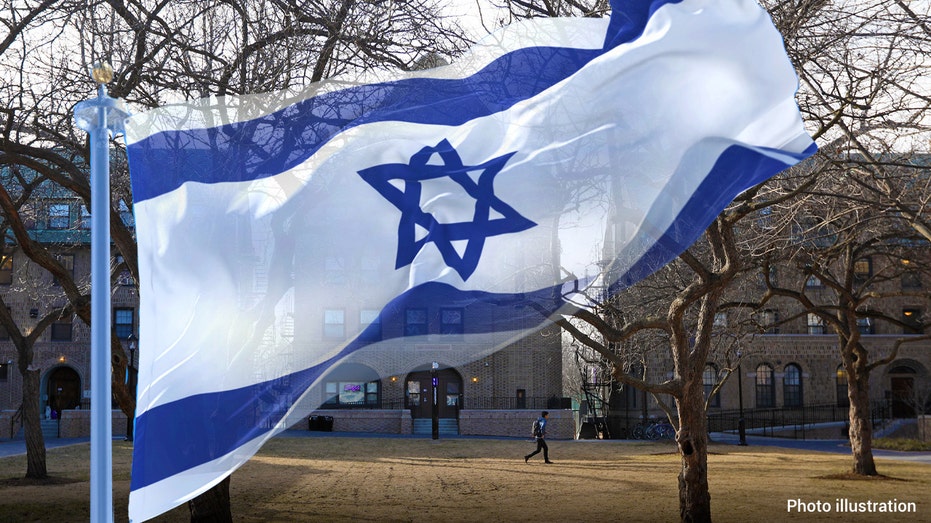US House Homeland Security Committee Holds Hearing on Surge in Antisemitic Violence and Terror Attacks
GOP lawmaker to host hearing on rising antisemitic violence amid recent attacks in D.C. and Boulder.

Tensions are escalating on Capitol Hill as a leading member of the House’s Homeland Security Committee prepares to hold a hearing addressing the alarming spike in antisemitic violence across the United States. This move comes in response to recent high-profile attacks, including incidents in Boulder, Colorado, and Washington, D.C., that have left Jewish communities reeling and law enforcement agencies on high alert.
Rep. August Pfluger, chairman of the committee’s counterterrorism and intelligence subcommittee, announced the hearing will take place on June 11. He emphasized that these attacks, marked by both violence and intimidation, reflect a troubling national trend rather than isolated events. "Antisemitic violence and harassment will not, and cannot, remain unchecked in the United States of America – whether it’s on college campuses or in our communities," Pfluger asserted, highlighting a pattern of threats ranging from harassment of Jewish students and inflammatory rhetoric to arson and targeted killings.
The upcoming hearing will feature witnesses such as Kerry Sleeper, a top official with the Secure Community Network—the largest Jewish security group in North America. Sleeper’s responsibilities include around-the-clock coordination at the National Jewish Security Operations Command Center, working closely with institutions like the Department of Homeland Security and the FBI. The hearing aims to assess the preparedness of federal, state, and local agencies in confronting what Pfluger calls an “increasingly complex threat landscape.”
This heightened scrutiny comes as criticism mounts over the Biden administration’s border and immigration policies. In the wake of the Boulder attack, suspects’ immigration histories have come under renewed focus. Mohamed Sabry Soliman, the alleged perpetrator, reportedly overstayed his visa after entering the U.S. during the current administration. Law enforcement officials allege he carried out the attack with a makeshift flamethrower, targeting an event organized by a Jewish advocacy group. The motive appeared politically charged, with reports that Soliman shouted pro-Palestinian slogans as the violence unfolded.
Just weeks earlier, another deadly episode left two Israeli Embassy employees dead in Washington, D.C. Authorities linked the attack to a Chicago man identified with pro-Palestinian sympathies. These incidents have amplified concerns about the influence of international conflicts on domestic safety and the potential for foreign terrorists or radicalized individuals to exploit U.S. vulnerabilities.
Pfluger, who has made the fight against online radicalization a legislative priority, recently reintroduced the Countering Online Radicalization and Terrorism Act—a bill that enjoys rare bipartisan support. The measure would require annual evaluations by DHS of terror groups’ use of technology platforms to recruit and incite violence within the U.S. Democratic Rep. Jimmy Panetta is among its supporters, underlining the cross-party recognition of the problem’s severity.
In parallel, senior lawmakers such as Rep. Mike Turner and Homeland Security Chair Mark Green have repeatedly sounded the alarm on the risks posed by lapses in border security. Citing reports of nearly 100 individuals on the terrorist watch list being released and an ISIS-affiliated smuggling network allegedly bringing hundreds into the country, these lawmakers called for urgent reforms and heightened vigilance late last year.
The FBI has echoed these concerns in public testimony. Former Director Christopher Wray revealed to Congress that law enforcement has acted on multiple plots involving individuals with suspected terrorist connections, some apprehended through immigration enforcement measures. He warned that foreign adversaries continue to seek ways to exploit entry points into the United States in order to stage attacks.
As the June hearing approaches, the focus will be squarely on how policymakers and security agencies intend to adapt to this evolving threat environment. The mounting rash of antisemitic violence and its apparent linkage to broader geopolitical tensions has galvanized lawmakers to seek new strategies to protect vulnerable communities—and the nation as a whole—from extremist violence.




